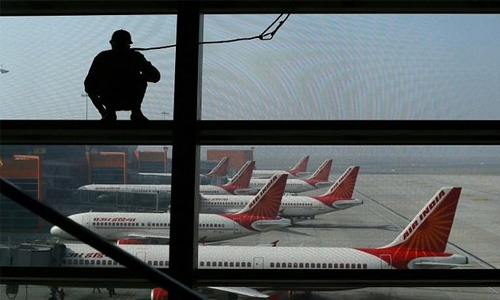India awards new routes in bid to get millions flying
New Delhi : Indian airlines will soon offer dirt-cheap fares to dozens of new, regional destinations -- some for the very first time -- as the world's fastest-growing aviation market tries to encourage millions more passengers to the skies.
The government awarded flying rights to five Indian airlines Thursday to connect large metro cities to 70 small towns, nearly half of which have never been reached by plane.
Tickets will be capped at 2,500 rupees (USD$38) per hour of flying time to keep fares low for new customers through a slew of subsidies and tax incentives.
India unveiled a plan in 2015 to make air travel more affordable for millions who never fly by reviving struggling airports and connecting rural areas to big cities.
"It's a great day for Indian aviation," Amber Dubey, partner and India head of aerospace and defence at global consultancy KPMG, told AFP.
"This will give a huge fillip to investments, tourism and job creation in the interiors of India."
Alliance Air, SpiceJet, Turbo Megha, Air Odisha and Air Deccan won the flying rights, said a government spokesman not authorised to speak to the media.
India's burgeoning middle class is taking to the skies in ever greater numbers, with passenger growth of 23.3 percent in 2016 according to industry body IATA -- double China's 11.7 percent increase over the same period.
Low-cost airlines are rushing to expand their fleets to take advantage of that growth, encouraged by a fall in fuel prices that last year pushed several private operators into profit for the first time.
Experts say India's aviation sector holds vast untapped potential, with just 100 million of its 1.2 billion people taking to the skies last year, but woeful infrastructure and high operating costs could threaten expansion.
By reviving some of the hundreds of disused regional airports -- among them a number of "ghost airports" that were built by the government but never used -- the government is trying to tackle some of the infrastructure concerns.
The winners of the first round of bids will receive three-year exclusive rights for the regional routes.
Auctions for routes will be conducted twice a year. The winners are required to commence services within six months or face a penalty.
Related Posts

